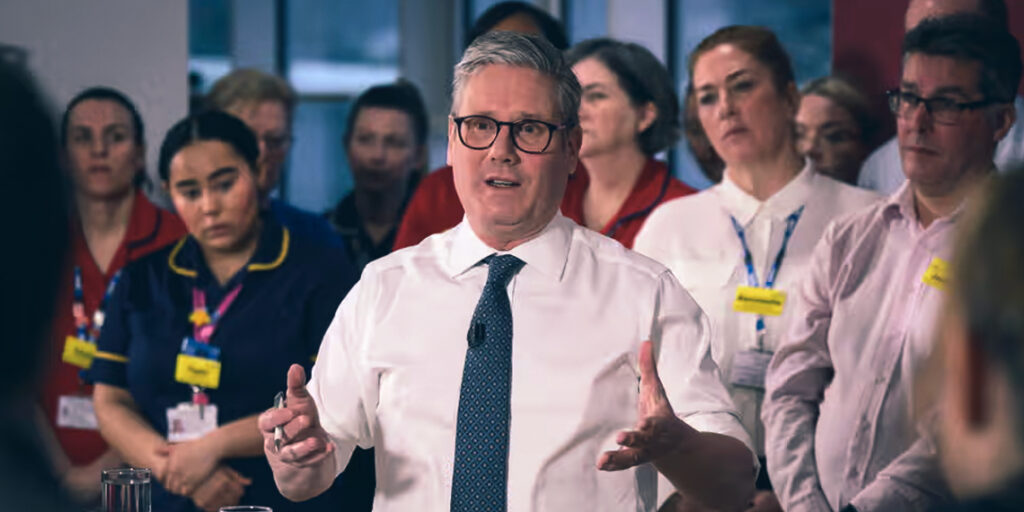Private hospitals in England are set to provide an additional one million appointments, scans, and operations for NHS patients annually as part of the government’s plan to address the extensive care backlog. The initiative, unveiled by Keir Starmer in a major speech, marks a significant expansion of the independent sector’s involvement in supporting the NHS.
Addressing the Waiting List Crisis
The plan targets the record 7.5 million treatments currently awaiting completion, with 6.4 million people on the NHS waiting list. To achieve this, the government has pledged an extra £2.5 billion in annual funding to private healthcare providers, raising the total budget for the partnership to nearly £16 billion. The goal is to reduce non-urgent care wait times to under 18 weeks by spring 2029.
Private hospitals already handle around 5 million NHS outpatient appointments, diagnostic tests, and surgeries annually, accounting for 10% of elective activity. The additional one million appointments will increase this contribution by 20%.
Expanded Role of Private Sector
The private sector has become deeply integrated into the NHS, conducting nearly one in five health service-funded operations. Private hospitals are responsible for about a quarter of all hip and knee replacements and cataract surgeries performed on NHS patients. The expanded partnership aims to reduce delays in key areas like gynaecology and orthopaedics.
The Department of Health and Social Care (DHSC) said the agreement encourages long-term relationships between NHS organisations and private sector providers to ensure efficiency and continuity in care delivery.
Keir Starmer Defends Private Sector Use
In his speech, Starmer dismissed criticism of the growing reliance on private healthcare, emphasizing that patient care takes priority over ideological debates.
“When waiting lists have ballooned to 7.5 million, we will not let outdated thinking stand in the way of getting people’s lives back on track. It would be a dereliction of duty not to use every available resource to get patients the care they desperately need,” he said.
Divided Opinions on Private Sector Involvement
The initiative has sparked mixed reactions. Dr. Tony O’Sullivan, co-chair of Keep Our NHS Public, criticized the plan, calling the private sector a “parasite” that undermines the NHS. He argued that the NHS could achieve the same capacity if funding were directed toward reopening operating theatres, providing new equipment, and hiring more NHS staff.
“Private ‘spare capacity’ relies on NHS funding and staff to expand. Feeding the parasite undermines the health of the NHS host,” O’Sullivan added.
Conversely, David Hare, CEO of the Independent Healthcare Providers Network, welcomed the agreement as a critical step in the NHS’s recovery. “This is a clear statement from the government, the NHS, and independent sector that independent providers are a vital part of the NHS’s long-term recovery and renewal,” he said.
Future Outlook
As waiting lists continue to grow, the government’s partnership with the independent sector aims to accelerate treatment times and improve patient outcomes. However, the debate over the role of private healthcare in the NHS highlights the broader challenge of balancing immediate needs with long-term sustainability.


